第41章 LETTER VII(5)
The part which may be called a petticoat--though the word is a slur upon the graceful drapery--is short, and shows the finely turned ankles, high insteps, and small feet. These women are tall, and straight as arrows; their limbs are long and rounded; their appearance is timid, one might almost say modest, and their walk is the poetry of movement. A tall, graceful Kling woman, draped as I have described, gliding along the pavement, her statuesque figure the perfection of graceful ease, a dark pitcher on her head, just touched by the beautiful hand, showing the finely moulded arm, is a beautiful object, classical in form, exquisite in movement, and artistic in coloring, a creation of the tropic sun. What thinks she, I wonder, if she thinks at all, of the pale European, paler for want of exercise and engrossing occupation, who steps out of her carriage in front of her, an ungraceful heap of poufs and frills, tottering painfully on high heels, in tight boots, her figure distorted into the shape of a Japanese sake bottle, every movement a struggle or a jerk, the clothing utterly unsuited to this or any climate, impeding motion, and affecting health, comfort, and beauty alike?
It is all fascinating. Here is none of the indolence and apathy which one associates with Oriental life, and which I have seen in Polynesia.
These yellow, brown, tawny, swarthy, olive-tinted men are all intent on gain; busy, industrious, frugal, striving, and, no matter what their creed is, all paying homage to Daikoku. In spite of the activity, rapidity, and earnestness, the movements of all but the Chinese are graceful, gliding, stealthy, the swarthy faces have no expression that I can read, and the dark, liquid eyes are no more intelligible to me than the eyes of oxen. It is the "Asian mystery" all over.
It is only the European part of Singapore which is dull and sleepy looking. No life and movement congregate round the shops. The merchants, hidden away behind jalousies in their offices, or dashing down the streets in covered buggies, make but a poor show. Their houses are mostly pale, roomy, detached bungalows, almost altogether hidden by the bountiful vegetation of the climate. In these their wives, growing paler every week, lead half-expiring lives, kept alive by the efforts of ubiquitous "punkah-wallahs;" writing for the mail, the one active occupation. At a given hour they emerge, and drive in given directions, specially round the esplanade, where for two hours at a time a double row of handsome and showy equipages moves continuously in opposite directions. The number of carriages and the style of dress of their occupants are surprising, and yet people say that large fortunes are not made now-a-days in Singapore! Besides the daily drive, the ladies, the officers, and any men who may be described as of "no occupation," divert themselves with kettle-drums, dances, lawn tennis, and various other devices for killing time, and this with the mercury at 80 degrees! Just now the Maharajah of Johore, sovereign of a small state on the nearest part of the mainland, a man much petted and decorated by the British Government for unswerving fidelity to British interests, has a house here, and his receptions and dinner parties vary the monotonous round of gayeties.
The native streets monopolize the picturesqueness of Singapore with their bizarre crowds, but more interesting still are the bazaars or continuous rows of open shops which create for themselves a perpetual twilight by hanging tatties or other screens outside the sidewalks, forming long shady alleys, in which crowds of buyers and sellers chaffer over their goods, the Chinese shopkeepers asking a little more than they mean to take, and the Klings always asking double. The bustle and noise of this quarter are considerable, and the vociferation mingles with the ringing of bells and the rapid beating of drums and tom-toms--an intensely heathenish sound. And heathenish this great city is. Chinese joss-houses, Hindu temples, and Mohammedan mosques almost jostle each other, and the indescribable clamor of the temples and the din of the joss-houses are faintly pierced by the shrill cry from the minarets calling the faithful to prayer, and proclaiming the divine unity and the mission of Mahomet in one breath.
How I wish I could convey an idea, however faint, of this huge, mingled, colored, busy, Oriental population; of the old Kling and Chinese bazaars; of the itinerant sellers of seaweed jelly, water, vegetables, soup, fruit, and cooked fish, whose unintelligible street cries are heard above the din of the crowds of coolies, boatmen, and gharriemen waiting for hire; of the far-stretching suburbs of Malay and Chinese cottages; of the sheet of water, by no means clean, round which hundreds of Bengalis are to be seen at all hours of daylight unmercifully beating on great stones the delicate laces, gauzy silks, and elaborate flouncings of the European ladies; of the ceaseless rush and hum of industry, and of the resistless, overpowering, astonishing Chinese element, which is gradually turning Singapore into a Chinese city! I must conclude abruptly, or lose the mail.
I. L. B.